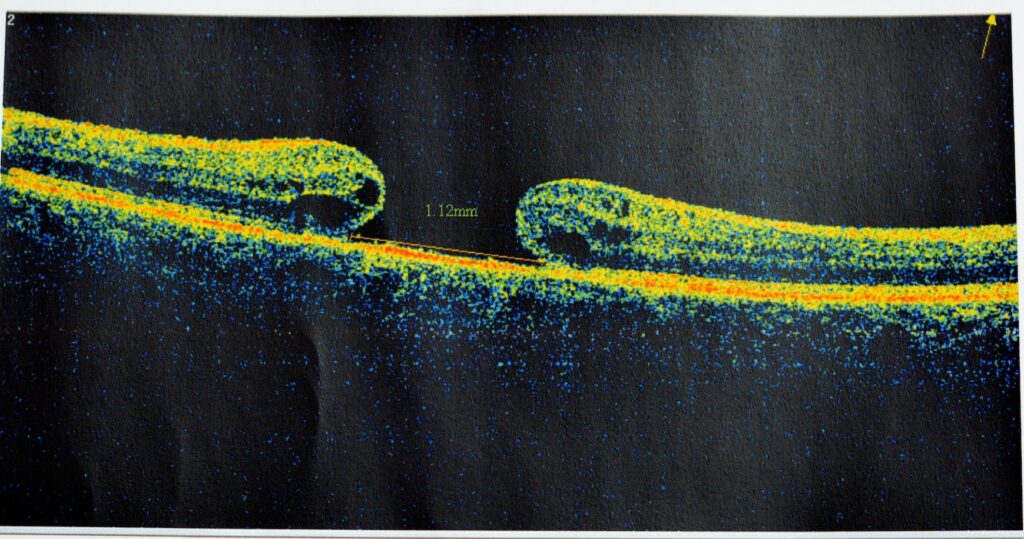Macular Hole
Macular Hole
A macular hole is a condition that affects the center of the retina, known as the macula. The macula is responsible for clear, detailed vision, allowing us to read, recognize faces, and see fine details. When a hole develops in the macula, it can lead to vision problems.

Causes of Macular Hole
The exact cause of macular holes is not fully understood. However, aging is a significant factor. As we get older, the gel-like substance called the vitreous, which fills the center of the eye, starts to shrink and pull away from the retina. In some cases, this can cause a hole to form in the macula.
Symptoms of Macular Hole
The symptoms of a macular hole can vary. In the early stages, you may experience blurry or distorted vision, similar to looking through a hole or a smudged area. Straight lines may appear wavy or bent. As the hole progresses, a dark or blind spot may develop in the center of your vision, making it difficult to see objects clearly.
Diagnosing Macular Hole
If you notice any changes in your vision, it is important to consult an eye care professional. They will perform a comprehensive eye exam to evaluate your vision and the health of your retina. This may involve dilating your pupils to get a better view of the macula. Special imaging tests, such as optical coherence tomography (OCT), may also be used to provide detailed images of the macula and confirm the presence of a macular hole.

Treatment Options
The treatment for a macular hole depends on the size and stage of the hole, as well as the individual’s overall eye health. In some cases, small macular holes may close on their own without intervention. However, if the hole is large or causing significant vision problems, surgery may be recommended.
Vitrectomy is a common surgical procedure for treating macular holes. During this procedure, the vitreous gel is removed and replaced with a gas bubble, which helps the hole to close and the retina to reattach. You will need to position your head in a specific way to allow the gas bubble to press against the macula and promote healing. Over time, the gas bubble will naturally dissolve.
Following surgery, you may be advised to avoid certain activities that could put strain on your eyes, such as heavy lifting or straining during bowel movements. Your eye care professional will provide specific instructions to aid in the healing process.
Recovery and Outlook
The recovery period after macular hole surgery can vary from person to person. It may take several weeks or months for your vision to improve. It’s important to attend all follow-up appointments to monitor your progress and ensure proper healing.
While not all macular holes can be prevented, regular eye exams can help detect any changes in your retina early on. If you notice any changes in your vision or have concerns, it is essential to consult an eye care professional promptly. With timely diagnosis and appropriate treatment, many individuals experience significant improvement in their vision and quality of life.
